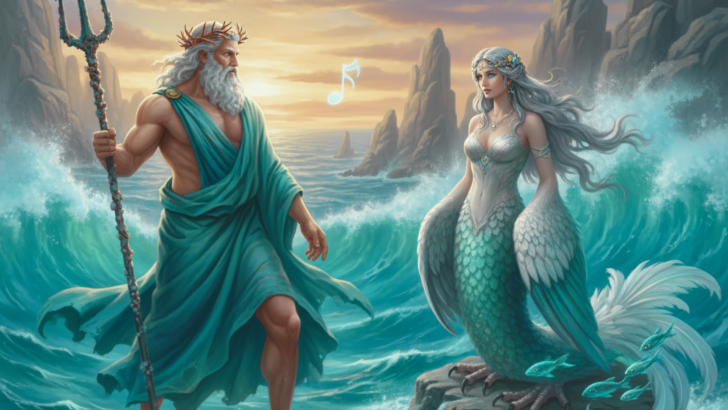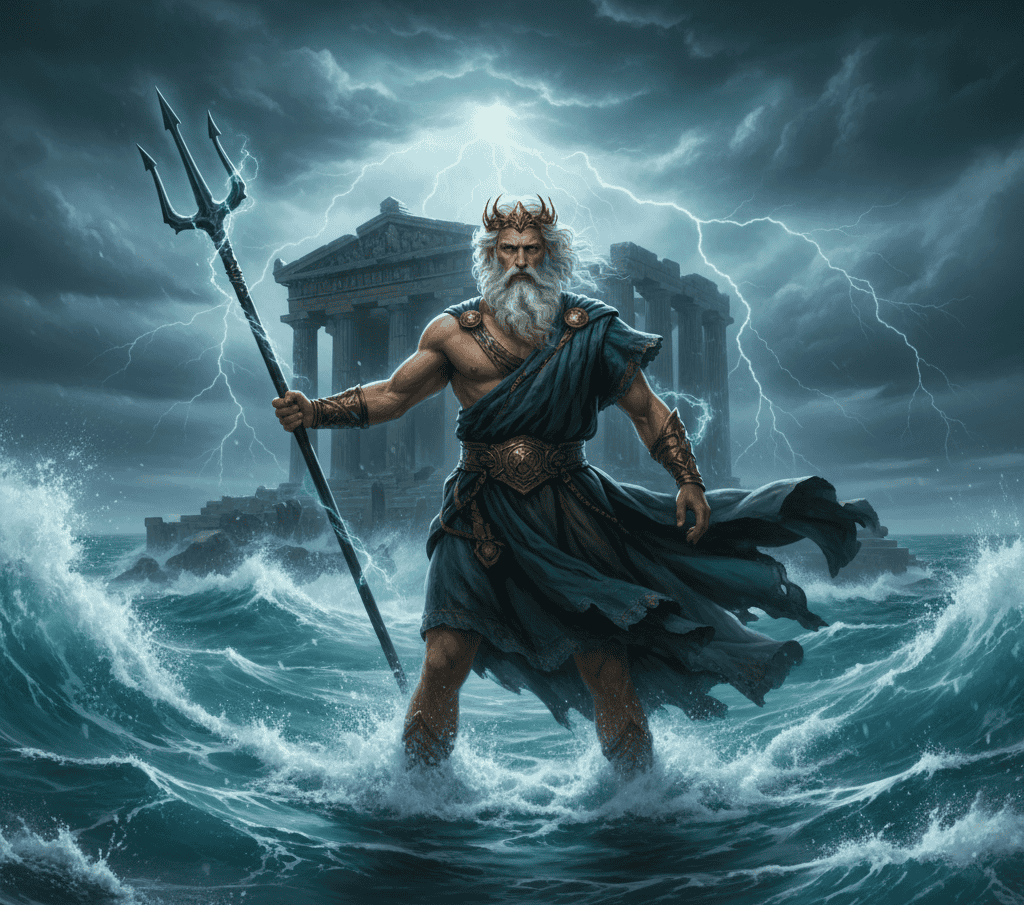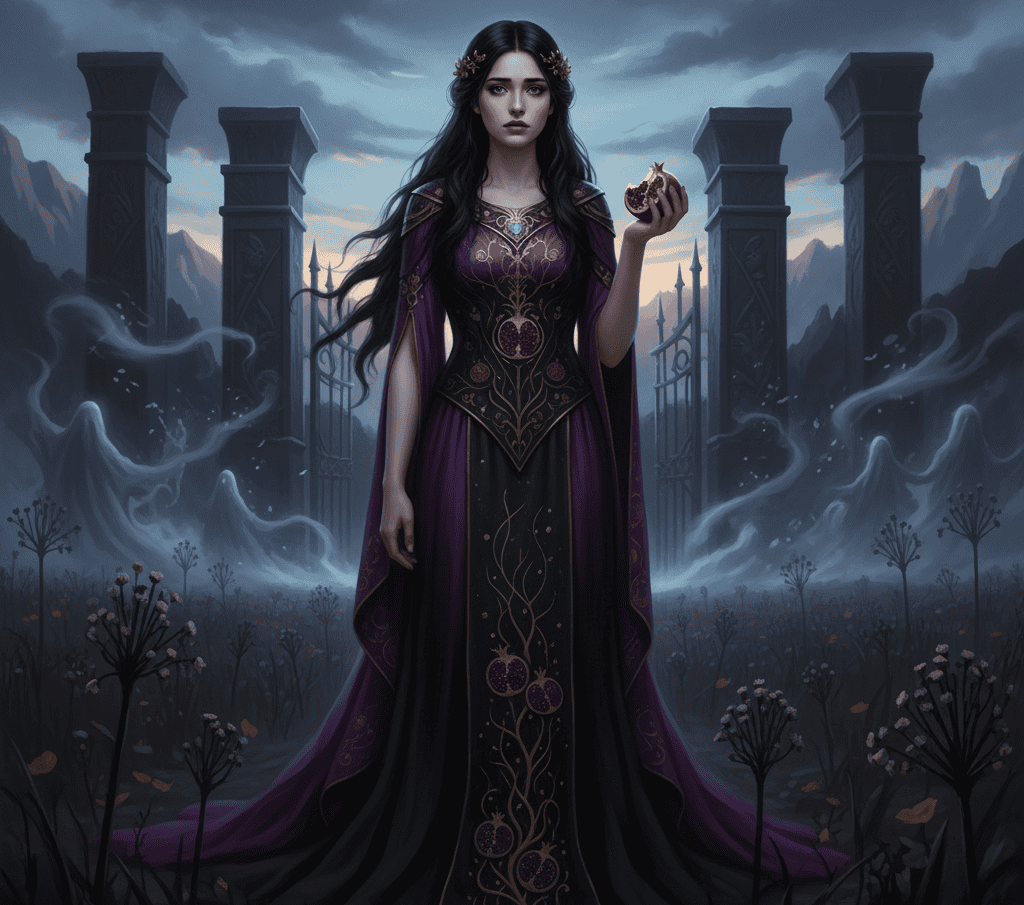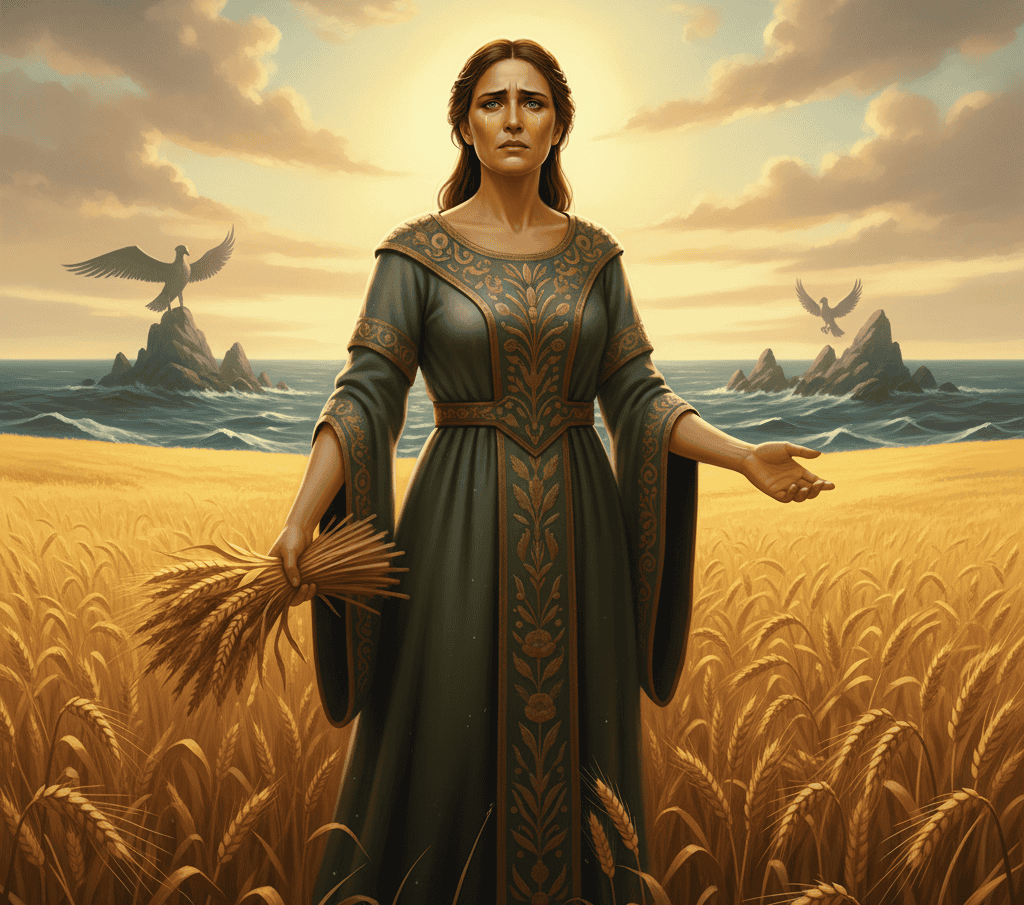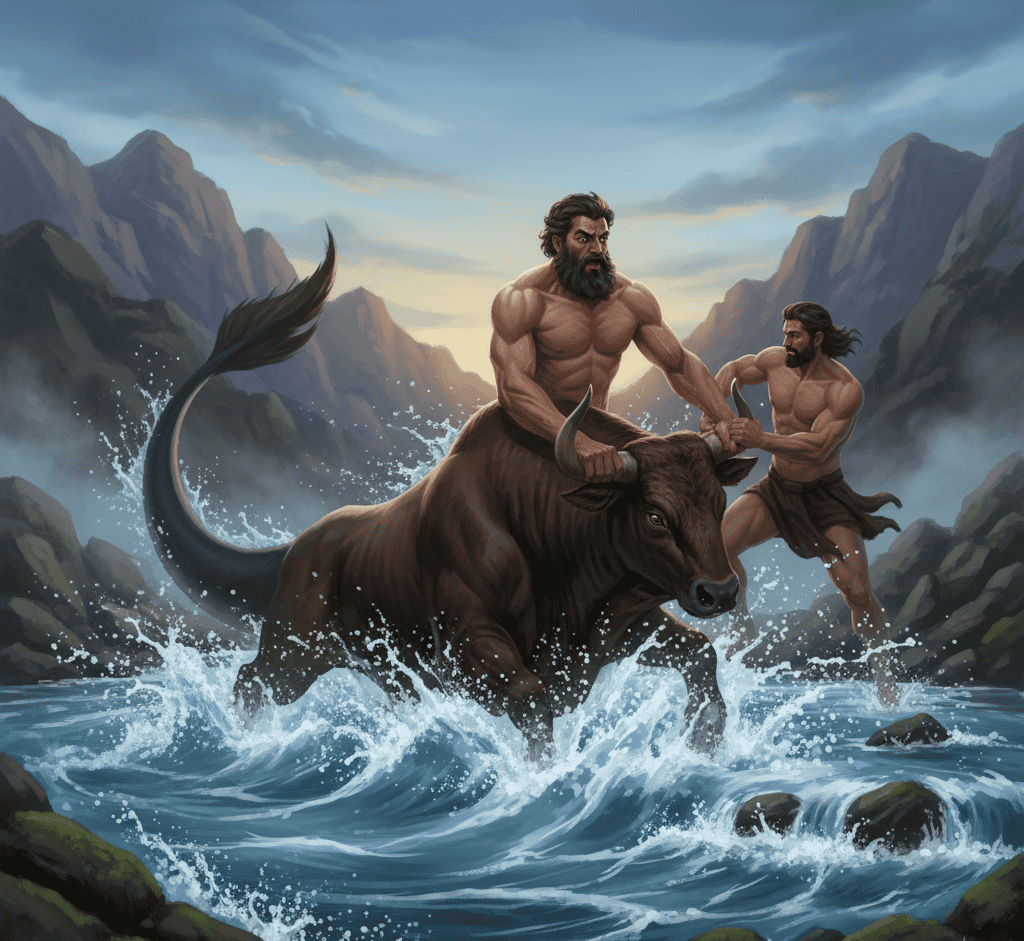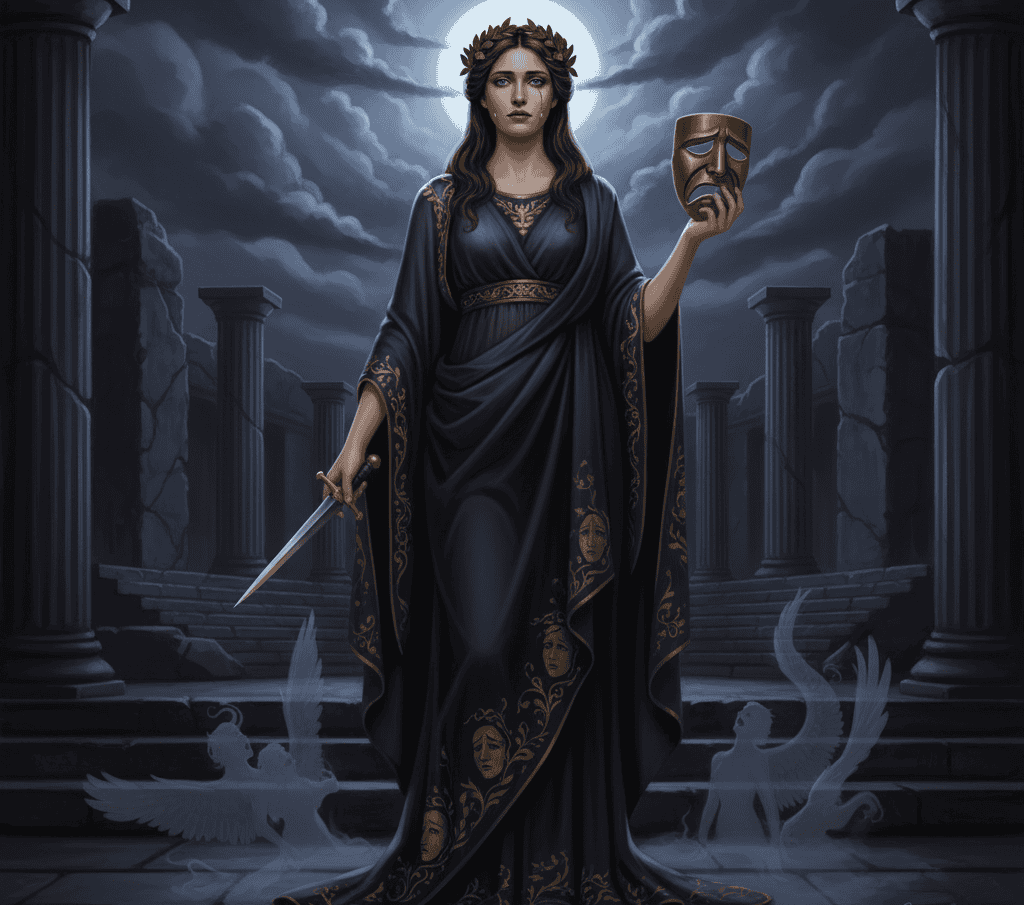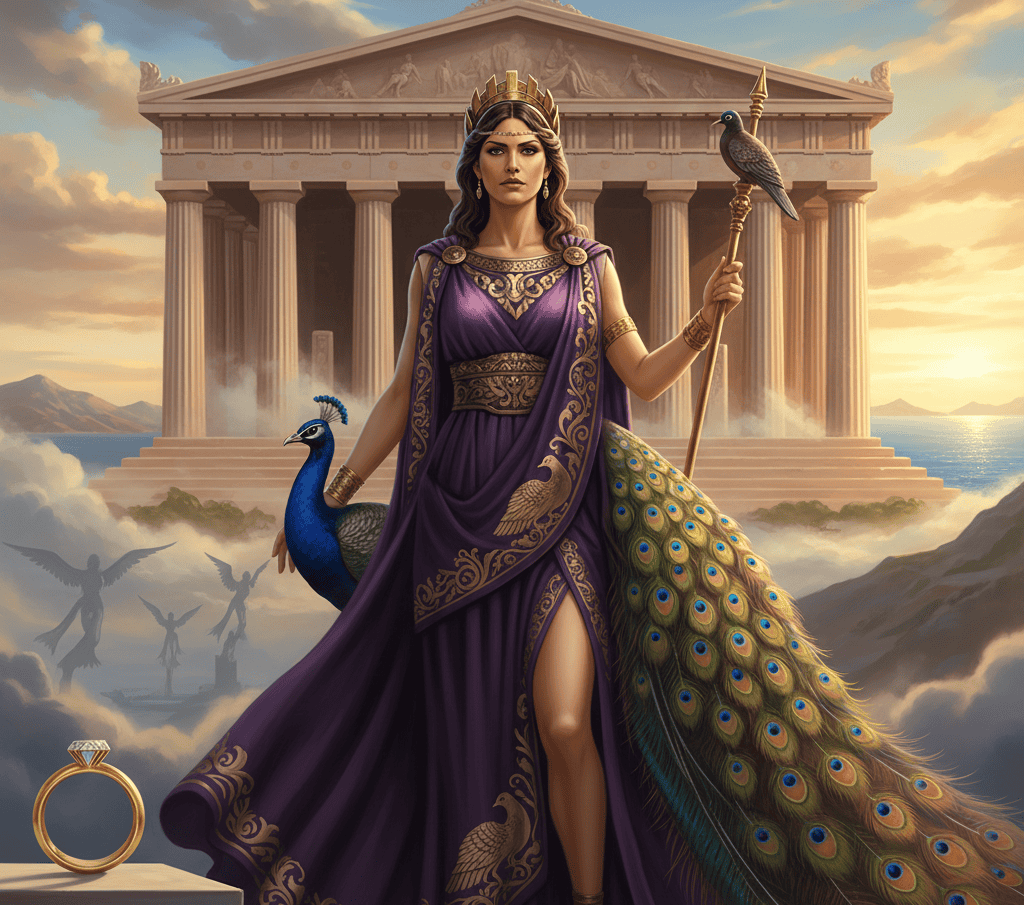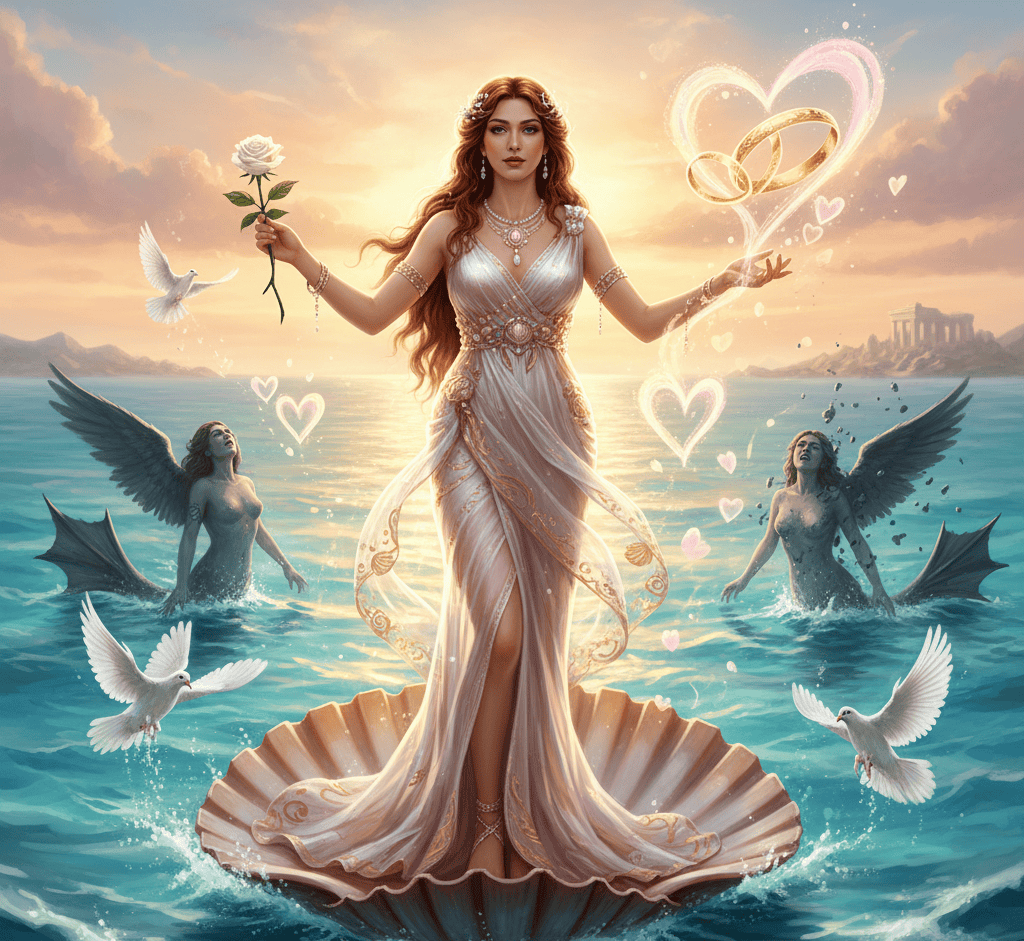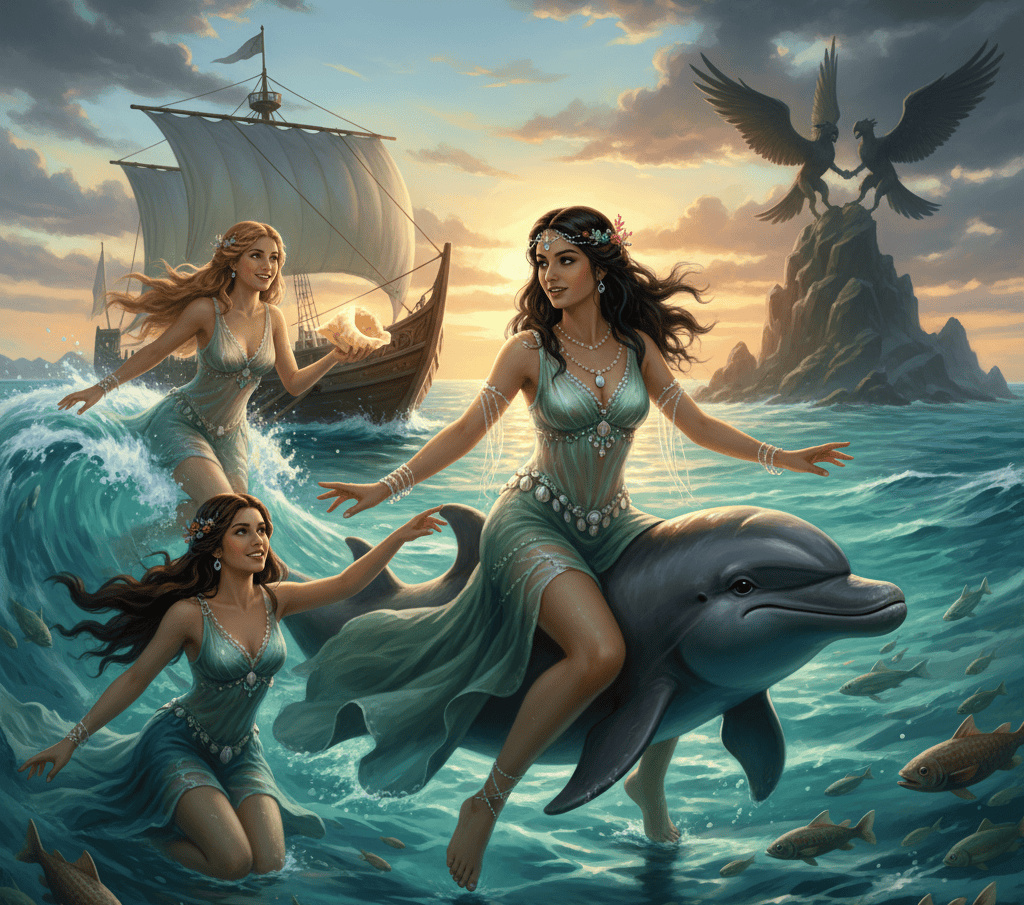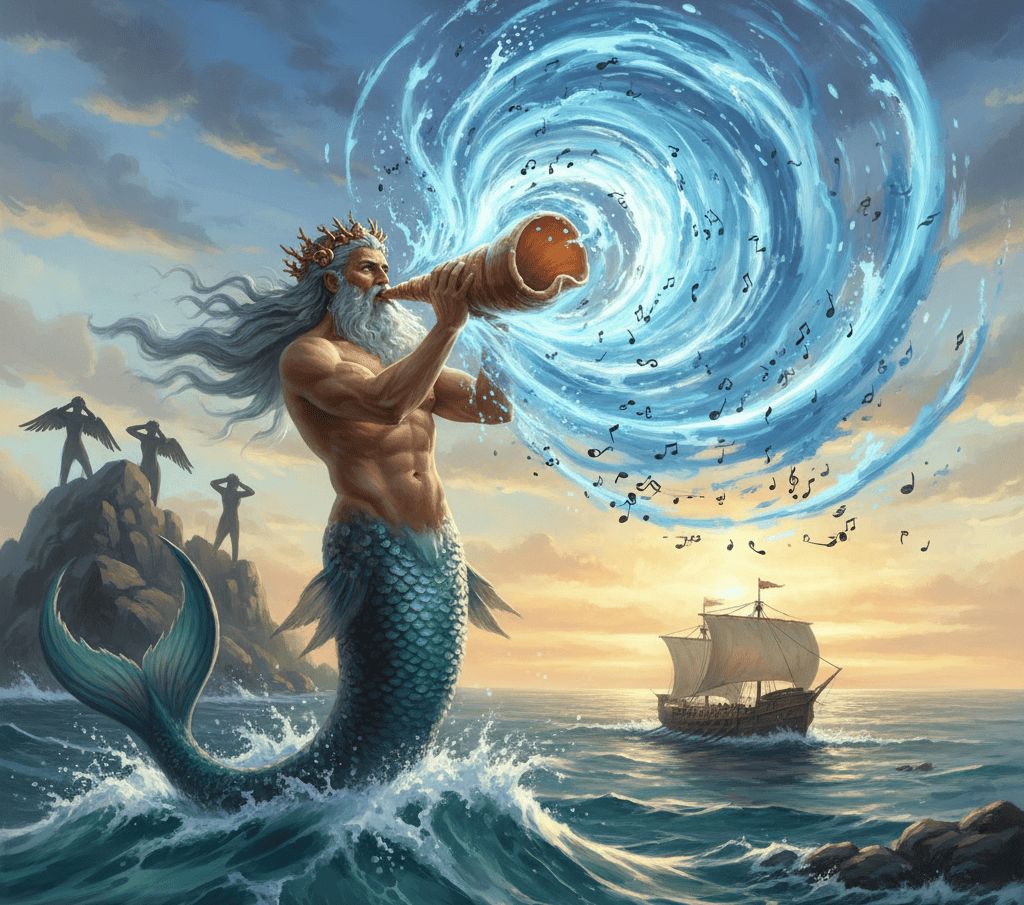The sirens were among the most mysterious beings of ancient myth—half-woman, half-bird (and later imagined as half-fish), whose voices could lead sailors to their deaths.
But sirens never existed in isolation. Like all mythical creatures, they belonged to a larger web of gods, goddesses, and spirits who ruled the seas, controlled the winds, and decided the fates of sailors.
To understand sirens, it helps to understand the divine powers that surrounded them.
Many of these gods and goddesses were feared, worshiped, or called upon by sailors to protect themselves from the deadly lure of the sirens.
Others were believed to be related to the sirens themselves, either as their creators, companions, or rivals.
Let’s explore ten of the most important deities tied to both the sea and the haunting allure of the sirens.
1. Poseidon – God of the Sea
Poseidon, brother of Zeus and Hades, ruled over the vast waters of the world. Sailors prayed to him before every voyage, knowing that he could whip up storms or grant calm seas at will.
While Poseidon was not directly tied to sirens in myth, his presence loomed over every story involving them.
The sirens’ rocky homes were part of his domain, and their songs echoed across waters he controlled.
Some sailors believed that angering Poseidon could make the sirens’ call more dangerous, as though he allowed them to claim careless mortals.
Conversely, earning his favor through sacrifices—like tossing wine or animals into the sea—could protect against the voices of the sirens.
In this way, Poseidon stood as both an indirect enemy and a possible shield from their enchantments.
2. Persephone – Goddess of the Underworld
Persephone’s connection to the sirens is deeply personal. According to one myth, the sirens were once her companions—nymphs who played and sang with her in the meadows.
When Persephone was abducted by Hades, her friends failed to save her. Demeter, Persephone’s grieving mother, punished them by transforming them into sirens so they would forever search for their lost mistress.
This origin story reveals the sirens as tragic figures bound to Persephone’s fate. Their haunting songs were not merely traps for sailors but laments for their lost goddess.
Sailors who knew this myth might have felt a shiver when passing their rocky shores, sensing that the sirens’ melodies carried echoes of Persephone’s sorrow.
3. Demeter – Goddess of Harvest and Motherhood
Demeter, goddess of grain and fertility, is another key figure in the sirens’ tale. As Persephone’s mother, she was the one who cursed her daughter’s companions.
Some versions say she gave them wings so they could search land and sea for Persephone. Others claim she punished them by chaining their lives to the ocean, forcing them to lure mortals out of bitterness.
Demeter’s role makes her both the creator of the sirens and a reminder of divine wrath.
To sailors, her story emphasized that even seemingly gentle goddesses of earth and harvest could unleash terrifying monsters when driven by grief or anger.
4. Achelous – God of Freshwater Rivers
The sirens were not only linked to the salty seas but also to rivers, and no god embodied this connection more than Achelous.
As the god of freshwater, he was said to be their father in some traditions. His union with the muse Melpomene or another divine mother produced the sirens as part of his watery brood.
Achelous himself was a shape-shifter, known for battling Heracles and transforming into a bull or serpent. His children, the sirens, inherited his dangerous unpredictability.
Their ability to pull sailors from safety into destruction mirrored the way rivers could look calm but hide deadly currents beneath the surface.
5. Melpomene – Muse of Tragedy
The muses were divine patrons of the arts, and Melpomene, the muse of tragedy, is often cited as the mother of the sirens.
Her connection helps explain the irresistible beauty of their voices. Where mortals could only imitate art, the sirens embodied it in its purest, divine form.
Their songs weren’t merely music—they were tragic poetry given flesh and melody. This link also deepens the sense of sorrow in the sirens’ myth.
If they were born of tragedy itself, then their voices carried not just temptation but the pull of inevitable doom.
Sailors who heard them weren’t simply enchanted; they were swept into a drama written by fate.
6. Apollo – God of Music and Prophecy
Apollo, the radiant god of music, poetry, and prophecy, forms a natural counterbalance to the sirens.
If their song lured mortals to destruction, his music could uplift, heal, and inspire.
Some sailors prayed to Apollo for protection, hoping his melodies might shield them from the darker power of the sirens’ voices.
Apollo’s role as a prophetic god also matters here. The sirens were sometimes described as offering forbidden knowledge to those who listened.
In this sense, they rivaled Apollo, who granted visions and truths through his oracle at Delphi.
Where Apollo gave guidance, the sirens gave false promises. Their contest was not only musical but also spiritual—truth versus illusion, safety versus ruin.
7. Hera – Queen of the Gods
Though not often directly linked to sirens, Hera’s association with marriage, fidelity, and feminine power placed her in symbolic opposition to them.
The sirens embodied dangerous seduction and betrayal, drawing men away from their wives and homes. Hera, protector of marriage, could be invoked against them as a divine guardian of loyalty.
Some later myths suggest that Hera herself used sirens or other enchanting beings as tools of punishment, sending them against those who crossed her.
If true, this would make her both an adversary and a commander of their powers, wielding them to enforce her will.
8. Aphrodite – Goddess of Love and Desire
No discussion of sirens can ignore Aphrodite, goddess of love and beauty. The sirens’ allure was physical as well as musical, and their power over men echoed Aphrodite’s dominion over passion and desire.
While Aphrodite inspired love that could bring joy, the sirens corrupted it into an obsession that led to death.
Some legends tie Aphrodite to sea creatures, since she was born from the foam of the ocean itself.
This placed her in close symbolic company with the sirens, both representing the double-edged nature of beauty.
Sailors feared that without Aphrodite’s blessing, love could easily twist into destruction through the voices of the sirens.
9. The Nereids – Sea Nymphs and Protectors
The sirens were not the only maidens of the sea. The Nereids, daughters of the sea god Nereus, were benevolent nymphs who aided sailors.
Where the sirens lured ships into ruin, the Nereids guided them to safety, riding dolphins or calming waves.
This contrast made the Nereids natural rivals to the sirens. Sailors prayed to them for safe passage, hoping the friendly voices of these nymphs would drown out the dangerous songs of their darker cousins.
The existence of the Nereids gave balance to the mythological seascape—reminding sailors that not all feminine forces of the sea sought their destruction.
10. Triton – Herald of the Sea
Triton, son of Poseidon and Amphitrite, was a mighty sea god often depicted with a conch shell trumpet. His blast could calm or stir the waves, guiding ships through dangerous waters.
Some later myths imagined Triton’s horn as powerful enough to silence the sirens, drowning their melodies beneath its booming call.
As the herald of the sea, Triton represented order against chaos. While the sirens lured sailors into wreckage, he announced safe passage and divine authority.
For sailors, invoking Triton’s name was like calling for the sea itself to answer back against the haunting songs that threatened their lives.

I always felt a strong connection to the Divine since my birth. As an author and mentor, my mission is to help others find love, happiness, and inner strength in the darkest of times.

